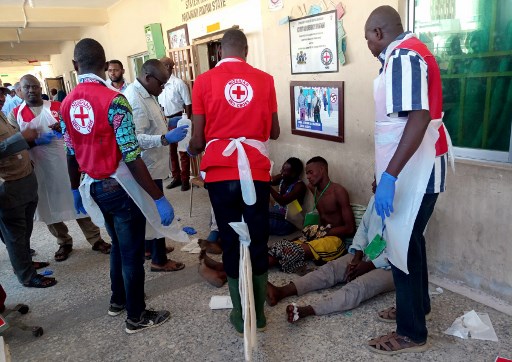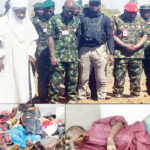
The President of the Nigerian Red Cross Society, Prince Oluyemisi Adeaga, has said that the Diphtheria outbreak is currently affecting 32 out of 36 states in Nigeria.
Adetayo stated that the outbreak was officially declared on January 20, 2023, and confirmed cases at the time stood at 111, with 22 recorded deaths and a case fatality rate of 19.8 per cent.
He also added that the most affected states were Kano, Yobe, Katsina, Sokoto, and Enugu and vaccination coverage remained a concern, with only 43.2 per cent of confirmed cases being fully vaccinated.
According to him, in September and October, there was a spike with over 15,000 suspected cases, 9,772 confirmed cases, and 530 fatalities reported.
Adetayo disclosed these statistics on Tuesday while briefing the press at Park Inn Hotel by Radisson, Victoria Island Lagos.
The NRCS president further stated that diphtheria is a severe bacterial infection that can affect a person’s nose, throat, and occasionally, skin. It is brought on by the bacterium corynebacterium species.
He added that the people at the greatest risk of contracting diphtheria are children and people who have not received any, or only a single dose of the vaccine. Residents of densely crowded places and unsanitary areas are also at risk of contracting the disease.
Adetayo said healthcare professionals, hospital frontline workers, and anyone who had come into contact with suspected or confirmed diphtheria cases were also at risk unless they were professionally protected using the available means and methods.
“Diphtheria is a severe bacterial infection and is most severe in 12 states of Nigeria, with Kano State having the highest number of new infections. Our volunteers report that the disease is also serious in Yobe State. According to the National Primary Healthcare Development Agency, at least 117 children have died of the outbreak in the state.
“Diphtheria poses a significant threat to our national public health. The Nigerian Red Cross Society in conjunction with the International Federation of the Red Cross and Red Crescent Societies initially targeted funds towards combatting this emergency, with an intervention aimed at reaching one million, five hundred and eighty-five thousand, and eighty (1,585,080) individuals.
“Key achievements from the first phase of the diphtheria emergency include: the NRCS extended the diphtheria intervention to Kaduna and the FCT where new cases had just been reported at the time; 507,130 partially immunised/unimmunised children were mobilised for routine immunisation which is the administration of the pentavalent vaccine.
“Red Cross supported the routine immunisation vaccine intensification in Kano, Katsina and Osun, with 120 vaccination teams deployed and supported with stipends/logistics by the NRCS/State Primary Healthcare Development Agencies.
“Six hundred and forty volunteers trained in the six states for conducting risk communication and community engagement activities and social mobilisation for immunisation, 313 suspected cases were also identified by Red Cross volunteers and were referred to the treatment centres through the PHC Disease Surveillance Notification Officers,” he said.
He also explained that 17 live, interactive, call-in radio shows were produced in the six targeted states, but the problem continues to spread.
“However, as the enormity of the problem has become obvious, we have been forced to scale up to 12 states, up from the six in which we were operating. Initially, we operated in Kano, Katsina, Lagos, Osun, Kaduna and FCT but have now added Bauchi, Yobe, Jigawa, Zamfara, Borno, and Sokoto,” he added.





